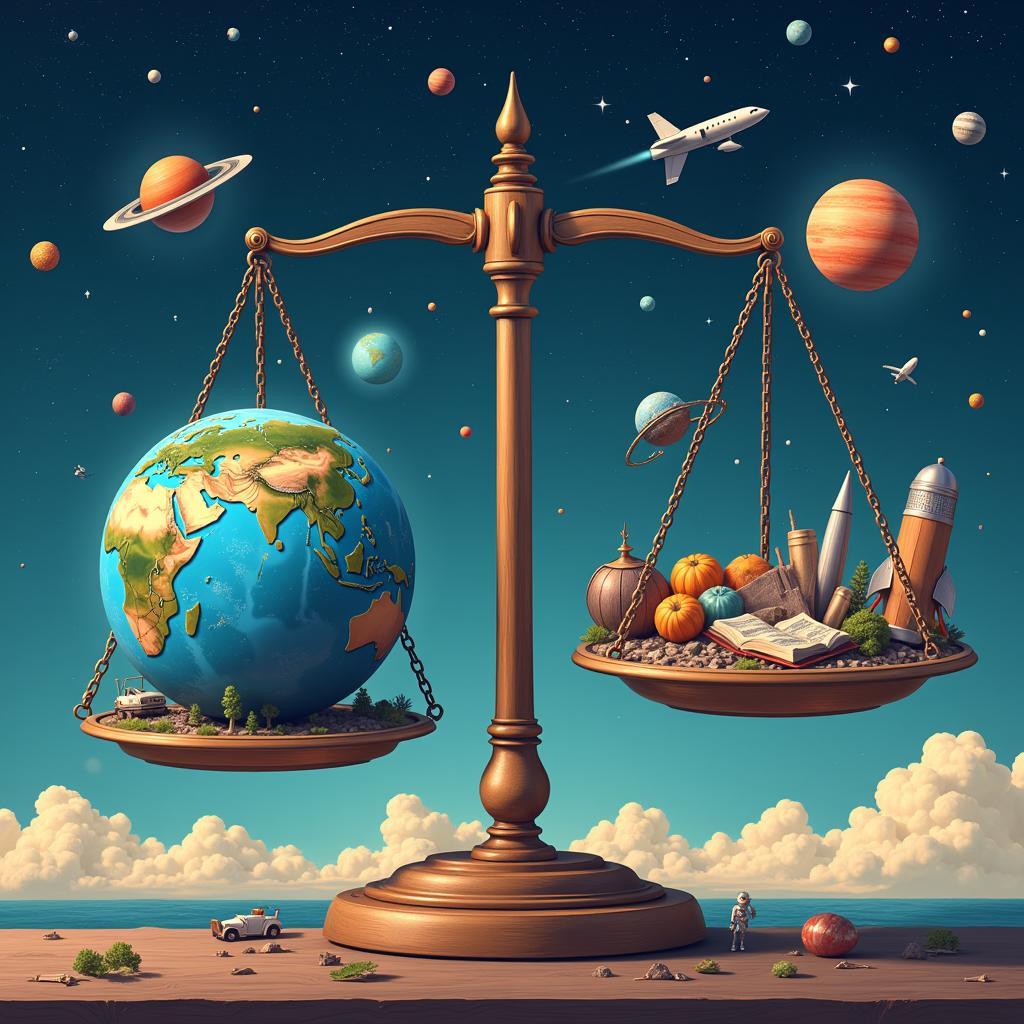Space exploration has been a recurring topic in IELTS Writing Task 2, appearing approximately 2-3 times annually across different test versions. Based on analysis of past papers and current global trends, this topic is likely to maintain its significance in future tests, particularly given increasing private sector involvement in space ventures and debates about government funding priorities.
Today we’ll examine one of the most frequently appearing question types related to the impact of space exploration on technological advancements:
Some people think that governments should spend money on space exploration, while others believe that money should be used to solve problems on Earth. Discuss both views and give your own opinion.
Question Analysis
This question requires candidates to:
- Discuss arguments both for and against government spending on space exploration
- Present a balanced view of both perspectives
- Clearly state and support their own position
- Provide relevant examples and explanations
Should governments spend money on space exploration is a complex issue that demands careful consideration of multiple factors.
Sample Essay 1 (Band 8.5)
The allocation of government funds between space exploration and terrestrial issues is a matter of significant debate. While some advocate for increased space research funding, others argue that these resources should address immediate earthly concerns. I believe a balanced approach that maintains space exploration while prioritizing pressing terrestrial issues is optimal.
Those supporting space exploration funding emphasize its long-term benefits for humanity. The role of space research in improving communication technology has been evident through developments like satellite technology and GPS systems, which have revolutionized modern life. Furthermore, space research has led to numerous technological innovations that benefit everyday life, from memory foam to water purification systems.
However, critics argue that immediate earthly problems deserve more attention. With issues like poverty, healthcare deficiencies, and environmental degradation affecting millions globally, they contend that government resources would be better spent addressing these immediate challenges. The substantial costs of space missions could potentially fund significant improvements in education, healthcare, or environmental protection.
In my view, while addressing terrestrial problems should take precedence, completely abandoning space exploration would be shortsighted. How space exploration benefits scientific research extends beyond immediate technological gains to include potential solutions for Earth’s challenges, such as resource depletion and climate change. A balanced approach would involve maintaining space research at a sustainable level while directing the majority of resources toward pressing terrestrial issues.

Sample Essay 2 (Band 6.5)
Many people have different opinions about whether governments should spend money on space exploration or use it to solve problems on Earth. This essay will discuss both sides and give my opinion.
On one hand, space exploration has some benefits. It helps us learn more about the universe and develop new technologies. For example, many inventions we use today came from space research, like special materials and computer systems. Also, it might help us find new resources or places to live in the future.
However, there are many problems on Earth that need money to fix. Many people don’t have enough food or good healthcare. Also, pollution and climate change are big problems that need lots of money to solve. This money could help many people if it wasn’t spent on space programs.
I think governments should focus more on Earth’s problems first. While space exploration is interesting, helping people who need food, education, and healthcare is more important right now. Maybe when these problems are better, we can spend more on space exploration.
Band Score Analysis
Band 8.5 Essay:
- Task Response (9): Fully addresses all parts with well-developed points
- Coherence/Cohesion (8): Logical organization with clear progression
- Lexical Resource (8): Wide vocabulary range used naturally
- Grammar (9): Various complex structures used accurately
Band 6.5 Essay:
- Task Response (6): Addresses main points but less developed
- Coherence/Cohesion (7): Basic organization with some progression
- Lexical Resource (6): Limited but adequate vocabulary
- Grammar (7): Mix of simple and complex structures
Key Vocabulary
- allocation (n) /ˌæləˈkeɪʃən/ – the process of distributing resources
- terrestrial (adj) /təˈrestriəl/ – relating to Earth
- advocacy (n) /ˈædvəkəsi/ – public support for an idea
- innovation (n) /ˌɪnəˈveɪʃən/ – new method or idea
- precedence (n) /ˈpresɪdəns/ – priority in importance
- shortsighted (adj) /ʃɔːˈsaɪtɪd/ – lacking foresight
- sustainable (adj) /səˈsteɪnəbəl/ – able to be maintained
- deficiency (n) /dɪˈfɪʃənsi/ – lack or shortage
Conclusion
Space exploration funding remains a relevant IELTS topic. Future questions might address:
- Private vs. government space exploration
- International cooperation in space programs
- Environmental impact of space exploration
- Cost-benefit analysis of space programs
Practice writing your own essay on this topic and share it in the comments for feedback!